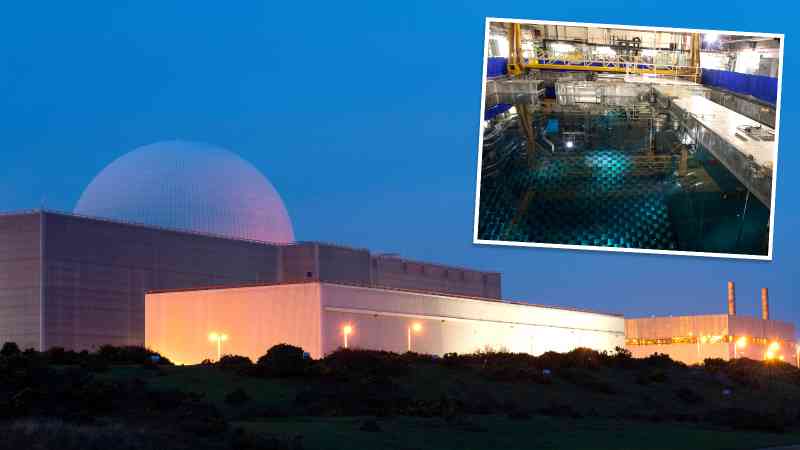Steel components in the heart of Britain’s most modern nuclear power station are wearing out more quickly than expected, forcing EDF to carry out lengthy unscheduled repairs.
The French energy giant is having to keep Sizewell B in Suffolk offline for three months longer than planned to deal with the safety issues.
The outage at the plant, capable of producing enough electricity for 2.5 million homes or about 3 per cent of Britain’s needs, will further restrict low-carbon nuclear power supplies amid prolonged shutdowns at older reactors.
EDF said it had found wear to some of Sizewell’s stainless steel “thermal sleeves”, which form part of the mechanisms that insert control rods into the reactor core to shut it down. Experience at a reactor in France has shown that extreme wear could eventually result in parts of the thermal sleeves coming loose and obstructing the control rods.
EDF is assessing the cause and extent of the wear at Sizewell and how many components need to be replaced before it seeks permission to restart the plant. It insisted the damage was “nowhere near” the stage where it would prevent control rods functioning, and that in any event the reactor could still be shut down safely.
Britain has eight nuclear plants, all operated by EDF, that have typically accounted for about a fifth of electricity supplies. However, the seven older plants are all due to shut down this decade and a raft of safety issues have led to prolonged closures at several reactors over the last few years, reducing nuclear’s role in the energy mix.
EDF has said it will close Hinkley Point B in Somerset and Hunterston B in Scotland permanently by next year, earlier than planned, because of cracks in their graphite cores. It is also considering closing Dungeness B in Kent as soon as this year. The plant was not scheduled to close until 2028 but has been offline since 2018 because of corrosion.
EDF is building a new nuclear plant at Hinkley Point C in Somerset but it is not due to start generating until 2026 at the earliest.
Sizewell B started up in 1995 and is scheduled to keep running until at least 2035, with EDF considering an extension to as late as 2055.
EDF took Sizewell B offline on April 16 for planned maintenance and had been due to return it to service at the end of May but was forced to extend the outage until the end of August.
It disclosed the issue with the thermal sleeves following comments last week by Centrica, which owns a 20 per cent stake in the nuclear fleet. The extended shutdown at Sizewell presents a fresh headache for the British Gas owner, which already incurred a £17 million loss on its nuclear stake in 2020 because of the outages at the other plants.
EDF said it believed a “very small proportion” of the 53 thermal sleeves needed replacing and was confident of a restart by the end of August.
A spokeswoman for EDF said that thermal sleeves “provide no significant nuclear safety-related function”. She said: “This issue is one our industry is aware of and has been subject to extensive assessment at Sizewell B and internationally. Contractor specialist teams are already in place to complete the inspection and repair work.”
A spokesman for the Office for Nuclear Regulation said it had held “extensive technical discussions with EDF” on the issue, adding: “EDF will be required to submit a robust safety case which demonstrates to our satisfaction that this issue has been addressed and that the reactor is safe to operate.”
